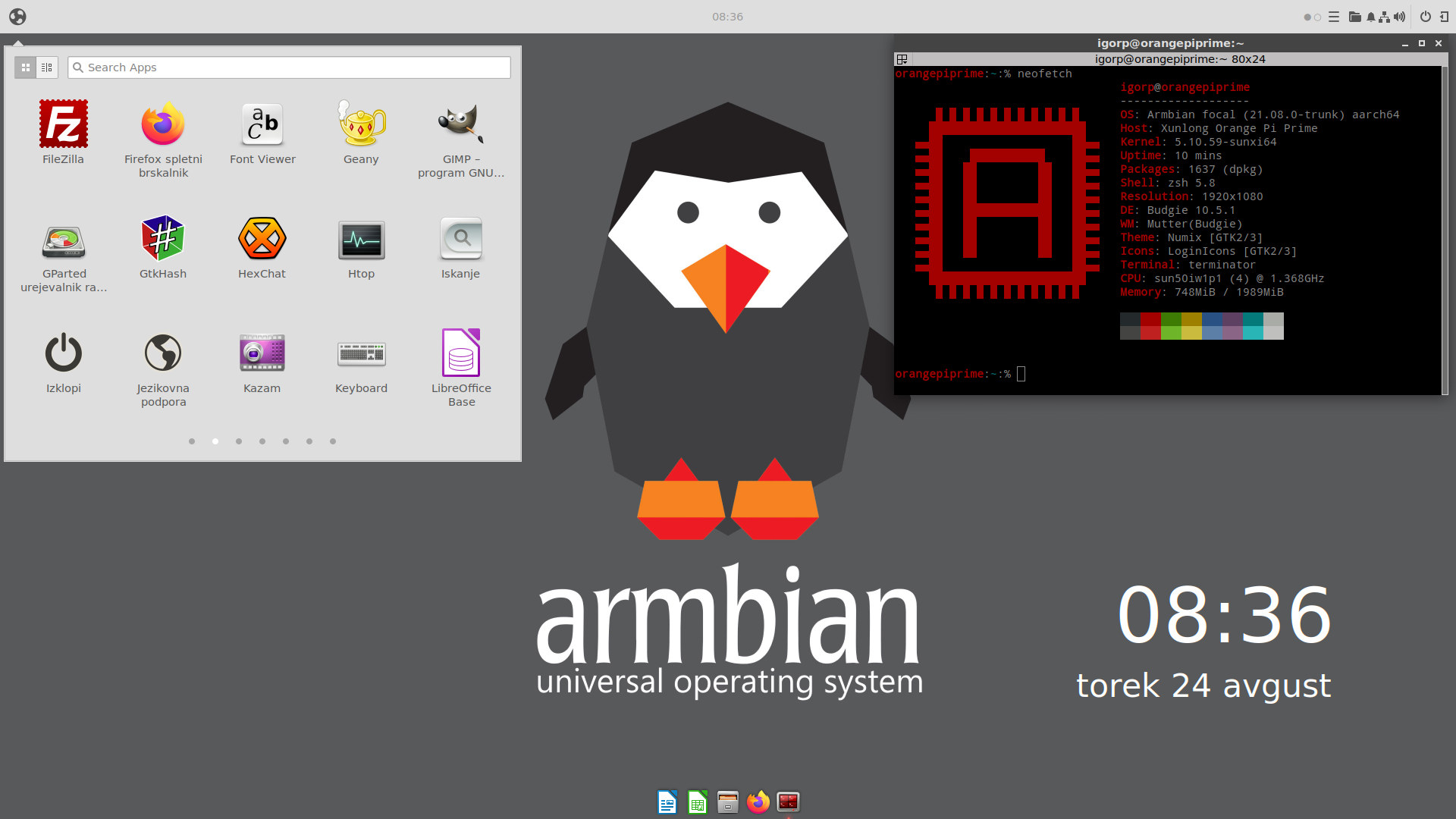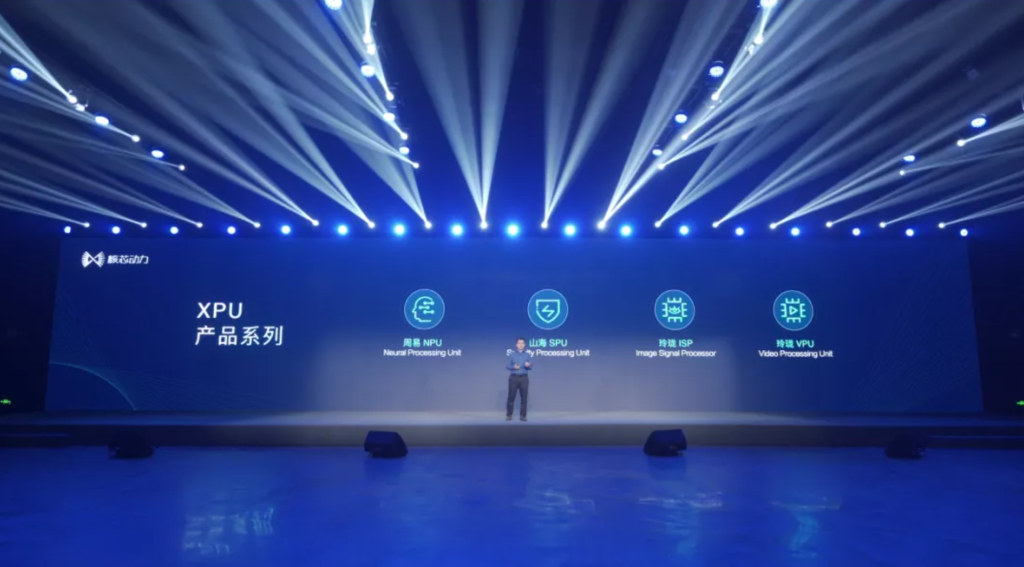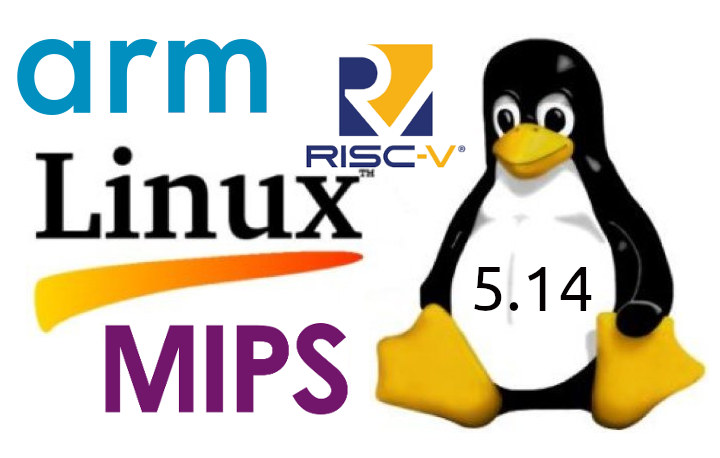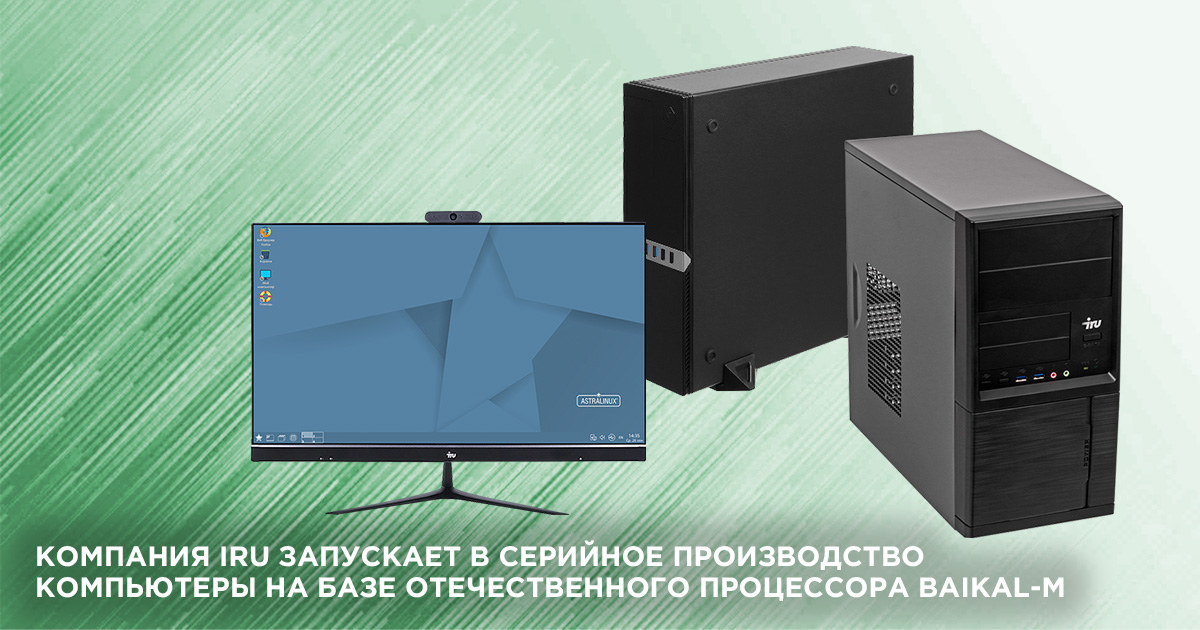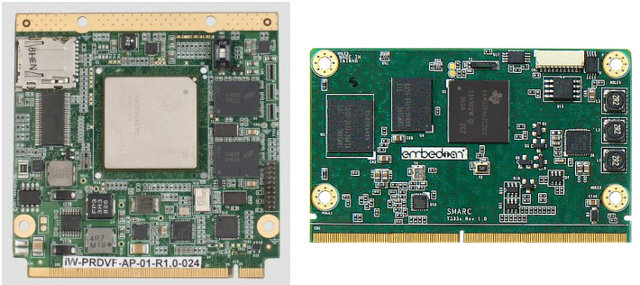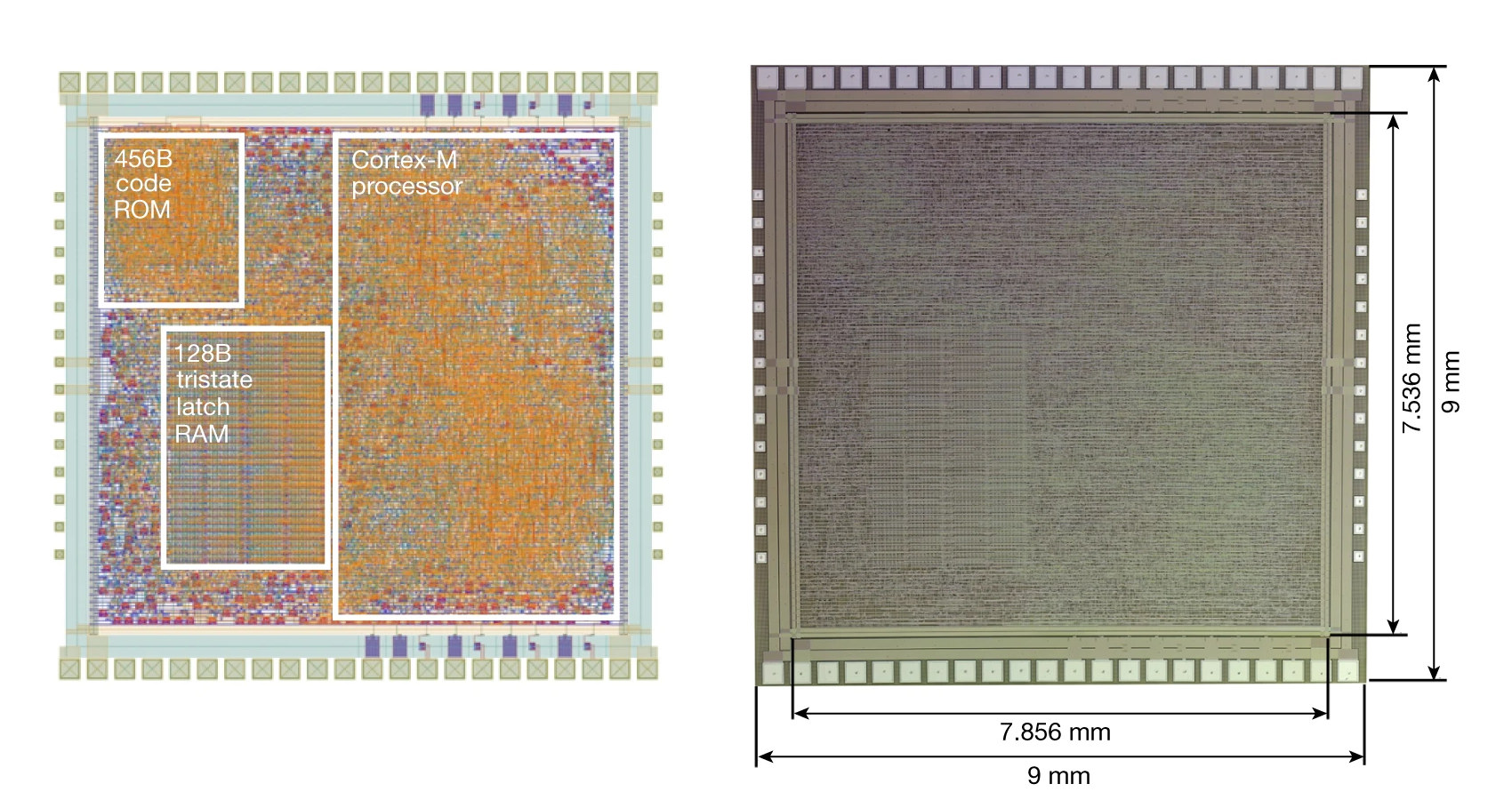Armbian provides stable releases four times a year, and Armbian 21.08 has just been released offering minimal, server or XFCE, Cinnamon and Budgie desktop Linux 5.10 LTS images for Arm boards, as well as a build system to customize your own image. If you’ve been using an Arm SBC that is NOT a Raspberry Pi board, you’ve probably been told to use Armbian, as the community is providing Debian and Ubuntu images for over 100 Arm boards that are either “Supported”, “WIP” (suitable for testing), or “CSC” (no official support, aka you’re on your own). Armbian 21.08 highlights (Note: EDGE are daily builds following daily builds of the Linux kernel and fresh packages from Debian sid, Ubuntu 21.04 “hirsute” or Ubuntu 21.10 “impish” userland): Based on Linux 5.10.59 released on August 15, 2021 Minimal, server or XFCE, Cinnamon, and Budgie desktop Fast automated language selection on the first run Regular […]
Arm China appears to be fully independent of Arm
Arm China (安谋科技) has apparently split from Arm Holdings in an interesting saga. Last year we noted Allwinner R329 processor featured Arm China AIPU with 256 MOPS. But this AI accelerator was nowhere to be found on the official Arm website, which seemed odd. But it appears there have been conflicts with and within Arm China for a while. Allen Wu, who was President of ARM Greater China, Member of the Executive Committee between 2014 and 2018, and has been Chairman and CEO, Arm Technology (China) since April 2018, has set up an investment fund called Alphatecture Hong Kong Ltd in 2019 in order invest in Bestechnic, an ARM licensee and developer of audio chips, reaping hundreds of dollars in profit for himself. Arm Technology (China)’s board of directors was not impressed and voted 7 to 1 on June 4, 2020 to dismiss him, but Allen refused to leave since […]
Linux 5.14 Release – Main changes, Arm, MIPS, and RISC-V architectures
Linus Torvalds has just announced Linux 5.14 release which happens to almost coincide with the anniversary of the initial announcement of the “small” project on August 25, 1991, about 30 years ago. Here’s Linux 5.14’s announcement: So I realize you must all still be busy with all the galas and fancy balls and all the other 30th anniversary events, but at some point you must be getting tired of the constant glitz, the fireworks, and the champagne. That ball gown or tailcoat isn’t the most comfortable thing, either. The celebrations will go on for a few more weeks yet, but you all may just need a breather from them. And when that happens, I have just the thing for you – a new kernel release to test and enjoy. Because 5.14 is out there, just waiting for you to kick the tires and remind yourself what all the festivities are […]
Oracle Cloud “Always Free” services include Ampere A1 Arm Compute instances
Oracle added thirteen additional new “Always Free” services to Oracle Cloud Free Tier last June, including Ampere A1 Arm Compute, Autonomous JSON Database, NoSQL, APEX Application Development, Logging, Service Connector Hub, Application Performance Monitoring (APM), flexible load balancer, flexible network load balancer, VPN Connect V2, Oracle Security Zones, Oracle Security Advisor, and OCI Bastion. So that means you could register an account for free, albeit a credit card or debit card is required for a $1 hold released after a few days, and use up to four Arm-based Ampera A1 cores with 24GB RAM for evaluation for free forever. Oracle Always Free services include: Infrastructure 2x AMD based Compute VMs with 1/8 OCPU and 1 GB memory each 4x Arm-based Ampere A1 cores and 24 GB of memory usable as one VM or up to 4 VMs. Note: 1x OCPU on x86 CPU Architecture (AMD and Intel) = 2x vCPUs; […]
Debian 11 “BullsEye” released with Panfrost & Lima GPU drivers, exFAT support, driverless printing
Debian 11 “BullsEye” has been released with Panfrost & Lima open-source drivers for Arm GPUs, in-kernel exFAT file system, driverless printing, and many more updates, plus a 5-year support window. Debian’s release is significant as the Linux operating system serves as the base for Ubuntu and derivatives, Raspberry Pi OS, and together with Ubuntu, is one of the operating systems supported by Armbian which offers images for a range of Arm-based single board computers. Arm Mali GPU support in Debian 11 I remember a few years ago 3D graphics acceleration on Arm boards was news, as it was quite a challenge to get it working due to binary blobs. But Debian 11 now comes with Mesa 20.3 framework which includes Panfrost and Lima open-source Mali GPU drivers by default, as well as the Vulkan 1.0 conformant V3DV driver for Raspberry Pi 4. As noted in the documentation that means the […]
Desktop and All-in-One Arm Linux computers launched with Baikal-M processor
The last time we wrote news about Baikal Electronics, the Russian company was offering MIPS-based processors, but they’ve now announced that several iRU-branded desktops and one all-in-one computer had been introduced with Baikal-M octa-core Cortex-A57 processor with Mali-T628 GPU, and support for up to 32GB DDR4 RAM, up to 3TB HDD. The computers target the Russian market, especially business to business (B2B) and business to government (B2G) customers, with the use of Astra Linux distribution that contains Russian “data protection tools” such as ViPNet SafeBoot, PAK Sobol, and others. iRU Opal Baikal-M Arm Linux SFF & microtower computers We’ve used to find Arm processors into really compact fanless systems, but it’s the case for iRU Opal computers with two form factors offered: SFF (Small Form Factor) and MT (Microtower). The company says the systems are offered with up to 32 GB DDR4 DIMM memory, up to 1TB SSD storage, and […]
Overview and List of System-on-Module and Computer-on-Module Standards – Q7, SMARC, COM HPC, and More
A System-on-Module (SoM), also known as a Computer-on-Module (CoM), is a small board with the key components of a computer such as SoC, memory, and possibly others components such as PMIC (Power Management IC), an Ethernet PHY, as well as one or more connectors used to connect to a baseboard, also called carrier board, which features standard ports such as Ethernet (RJ45), USB ports, SATA, power jack and so on. The advantages of using of baseboard + SoM design compared to a single board are at least twofold: Most of the PCB design complexity is often around the CPU/SoC and high-speed buses connected to the CPU/SoC. So you could buy an SoM, design your own baseboard and get a complete design relatively in a short amount of time, with reduced development resources and costs. The design is modular, so you could easily upgrade from one SoM to another one. For […]
PlasticArm is a functional, non-silicon, flexible Cortex-M0 microcontroller
Four years ago, we wrote about PragmatIC’s ultrathin and flexible plastic electronics circuit, with news that an ultra-cheap ARM Cortex M0 MCU made of plastic materials was coming soon. In this case, “soon” means about four years, but Arm has now finally announced PlasticArm, an ultra-minimalist, fully functional Cortex-M0-based SoC, with 128 bytes of RAM and 456 bytes of ROM that, with 18,000 gates, is twelve times more complex than previous state-of-the-art flexible electronics. PlasticArm specifications are similar to a standard Cortex-M0+ core with some notable exceptions: Cortex-M core in PlasticARM ARMv6-M architecture ISA – 16-bit Thunb and subset of 32-bit Thumb 32-bit data access and address width 86 instructions 2-stage pipeline Architectural register file mapped to RAM external to the CPU (instead of inside the CPU) Runs code from other Cortex-M CPUs 0.8-μm process There are two main advantages of PlasticArm. First, It’s flexible and integrated into paper, plastic, […]


